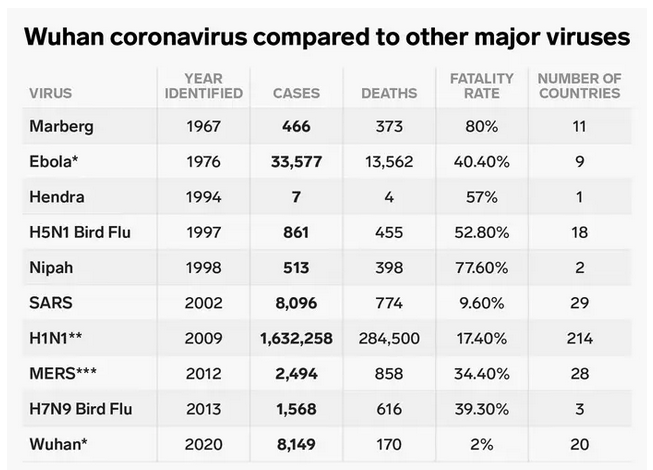E-cig loophole, pharmacy “chaos,” smaller American babies, and more
01 Feb 2020
Posted by Andrew Kantor
ICYMI: Under pressure edition
“How Chaos at Chain Pharmacies Is Putting Patients at Risk”
In letters to state regulatory boards and in interviews with The New York Times, many pharmacists […] described understaffed and chaotic workplaces where they said it had become difficult to perform their jobs safely.
They struggle to fill prescriptions, give flu shots, tend the drive-through, answer phones, work the register, counsel patients and call doctors and insurance companies, they said — all the while racing to meet corporate performance metrics.
We might be fighting opioid prescribing the wrong way
In short, looking at 669,000 providers, 8.9 million opioid prescriptions, and 3.9 million patients, researchers concluded that:
- “[M]ost US providers are careful in their prescribing” of opioids, but…
- The top 1% of providers prescribed an average “nearly 1000 times more than the middle 1%” and did it over several years
Thus, they conclude, it’s a waste of time to target the 99% with prevention programs — “Interventions focusing on this group of providers are unlikely to effect beneficial change and could induce unnecessary burden.”
Instead, they argue, “[O]ur results suggest that interventions targeted at high prescribing opioid providers should be prioritized” because, in part, that’s more likely to produce sustained results and to reach high-risk patients.
Hey techs! This conference is for U
Go on the adventure of a lifetime … and also come to TechU: The biggest event for Georgia pharmacy techs on May 2 this year!
It’s a full-day continuing education and networking event designed by Georgia pharmacy techs exclusively for Georgia pharmacy techs.
It starts at GPhA headquarters in Sandy Springs, then — after lunch (included, of course) — moves to Topgolf in Alpharetta. (And no, you don’t need to have ever picked up a club to have fun there.)
The whole shebang: Education, food, drinks, golf, and even a tote bag is only $25 for GPhA members — $30 if you register after February 14. (Non-members pay just $45, or $50 after Valentine’s Day.)
Register today at GPhA.org/techu or miss out on what all the cool kids will be talking about!
Nuts* for you
Another potential peanut-allergy vaccine, another set of ‘positive preclinical results.’ Place your bets — which will come first, a universal flu vaccine or one against peanut allergies?
* Technically legumes, but you knew that
E-cig loophole means kids aren’t stopping
Juul is out. Puff Bar is in, thanks to a gigantic loophole in that supposed ban on flavored e-cigarettes: Disposable vaping products are excluded. So guess what? “Disposable Flavor Pods Are the New Thing in Vaping.”
[A] footnote on page 9 of the new policy permits all flavors to continue to be sold in devices that cannot be refilled and are designed to be disposed of after the flavored nicotine has run dry.
Teenagers have caught on fast.
As one administrator put it, “Teens are very savvy and if they are addicted, they are going to do what it takes to continue a habit.”
But if you want them to stop…
The University of Texas Health Science Center developed a program called “CATCH My Breath” that it calls “the only evidence-based e-cigarette prevention program that has demonstrated effectiveness for middle school-aged youth.”
The curriculum emphasizes active, student-centered learning through group discussions, goal setting, refusal skills training, capacity building with analyzing tobacco company advertising, and creating counter-advertising and non-smoking policies.
Apocalypse Watch
It’s spreading, it still has a low mortality rate, it’s still nowhere near as bad as the flu. Airlines are cutting travel, airports are screening people, researchers are working on a vaccine but it could take years, etc. The Times keeps an updated page of info.
And Business Insider has a good chart for perspective:
It’s almost as if the parts of our bodies were connected
Lung damage from respiratory disorders like COPD seem to lead to an increase in … pancreatic cancer? Apparently so, according to research from Thomas Jefferson University. And the reason is fairly straightforward:
Low oxygen, called hypoxia, is a known feature of the pancreatic cancer microenvironment and a contributor to tumor aggressiveness and resistance to therapy.
Smaller kids
In anticipation of the soon-to-be-in-your-mailbox “Numbers Issue” of Georgia Pharmacy, we have this new tidbit from the University of Colorado Boulder: U.S. birth weights are down thanks to the increasing prevalence of inductions and C-sections.
They analyzed more than 23 million single births to healthy mothers from 1990 to 2013 […] Then they ran a simulation to see what would have happened if cesarean and induction rates hadn’t increased.
“We found that the decline in birth weight would not have happened if it were not for the rapid increase in these obstetric interventions,” said [lead author Andrea] Tilstra. “In fact, birth weights would have gone up.”
Drug, alien, or pop star?
It’s been a while since we had a game of “Medication or Sci-Fi Alien?”, but this time we’ll make it a little more complex. Ladies and gents, test your brain with “Medication, Sci-Fi Alien, or K-Pop Star?” — do you know which is which? (Hint: There are at least two of each.)
- Narsha
- Druoda
- Tazverik
- Yuzzum
- Heize
- Neggram
- Eunhyuk
- Taractan
- Ayvakit
- Tnuctipun
Elsewhere: “Where the Wind Comes Sweepin’ Down the Plain” edition
A bill introduced in the Oklahoma legislature would “replace the state’s third-party PBMs with a direct-to-pharmacy payment system.”
“States started using pharmacy benefit managers because of their promised cost savings but now many are realizing that instead of cutting prescription costs and saving states money, PBMs are putting the rebates and savings in their own pockets,” [OK stateSen. Paul] Scott said.



